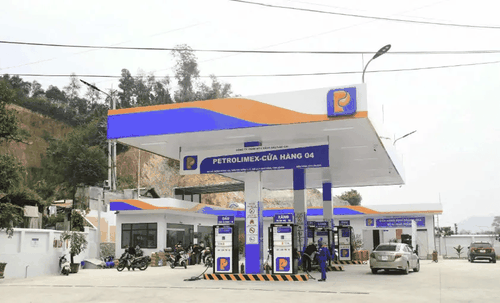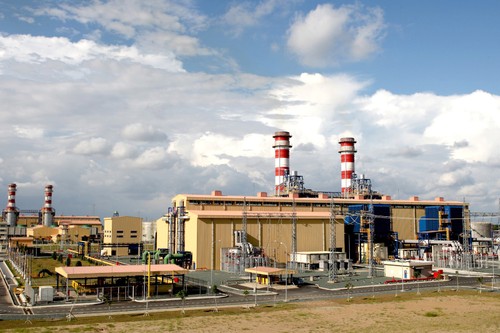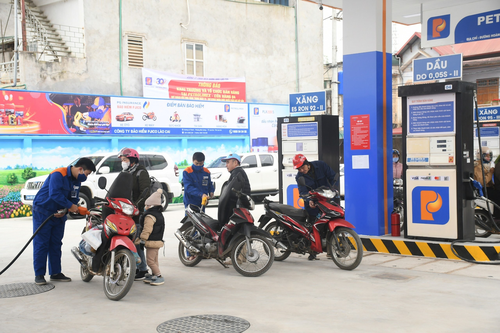 State energy corporations are core drivers in the development of the oil and gas industry. (Photo: PVN) State energy corporations are core drivers in the development of the oil and gas industry. (Photo: PVN) |
To ensure a unified understanding of the significance, content, and organization of implementation of Conclusion 76, with the consent of the Standing Secretariat, the Party Central Committee's Economic Commission collaborated with with the Ministry of Industry and Trade and the Vietnam Oil and Gas Group (PVN) to organize a conference to disseminate and implement Conclusion No. 76-KL/TW on August 22, 2024, in Hanoi. Attending and chairing the conference were Tran Luu Quang, Member of the Party Central Committee, Head of the Central Economic Commission, and Deputy Prime Minister; Tran Hong Ha, Member of the Party Central Committee and Deputy Prime Minister; and Nguyen Hong Dien, Member of the Party Central Committee and Minister of Industry and Trade. Over 400 delegates from ministries, sectors, localities, city party committees, relevant central party committees, and key officials of the PVN and the Vietnam National Petroleum Group (Petrolimex) participated in the conference.
 A Petrolimex gas station in Lao Cai province, Vietnam (Photo: Petrolimex) A Petrolimex gas station in Lao Cai province, Vietnam (Photo: Petrolimex) |
In his opening remarks, Tran Luu Quang, Head of the Central Economic Commission and Deputy Prime Minister, highlighted the Party and State's special attention to the oil and gas industry. He noted that the current context and new circumstances have brought numerous opportunities and challenges for the development of the oil and gas sector. Amid these new changes, the Politburo issued Conclusion 76-KL/TW on April 24, 2024 based on a report led by the Central Economic Commission and coordinated with relevant ministries, sectors, and localities. This document outlines major policies and resolutions to maximize the potential and strengths of Vietnam, particularly its oil and gas sector, helping Vietnam overcome challenges and achieve sustainable development. Conclusion 76-KL/TW provides particularly significant guidance for the development of Vietnam’s oil and gas industry, creating new momentum and opening up development opportunities for the sector.
The discussions, led by Mr. Quang, focused on: Implementing Resolution 41 and Conclusion 76: directions, tasks, solutions, feasibility, and particularly challenges in implementation; the compatibility of the oil and gas industry with national, sectoral, and local development; institutional reforms needed to establish a legal framework for resolving difficulties and promoting development; steps to build leading enterprises in the oil and gas field; promoting interaction between enterprises and localities, with the spirit of mutual support—localities supporting enterprise development and enterprises contributing to local growth. Such cooperation will ensure the overall development of the oil and gas industry and the nation.
 Cooperation between enterprises and localities will ensure the overall development of the oil and gas industry and the nation. (Photo: PVN) Cooperation between enterprises and localities will ensure the overall development of the oil and gas industry and the nation. (Photo: PVN) |
During the conference, Nguyen Duc Hien, Deputy Head of the Central Economic Commission, presented and disseminated key content of Conclusion 76-KL/TW. He detailed the situation, causes, and highlighted achievements in five main operational areas and strategic objectives after over eight years of implementing Resolution 41-NQ/TW. He emphasized that the institutionalization of Resolution 41-NQ/TW has received attention, with the government and the prime minister leading ministries and sectors to issue numerous legal documents, strategies, and plans related to the development of the oil and gas sector. Particularly, scientific and technological activities and human resource development in the industry have been prioritized and have achieved positive results. However, he also acknowledged existing limitations, including delays in achieving some strategic goals, infrastructure challenges, and the progress of key projects. These shortcomings stem from both objective and subjective causes, such as policy framework issues and inter-agency coordination challenges. Based on analyses of international and domestic contexts, Mr. Hien outlined major directions, tasks, and solutions to implement Conclusion 76-KL/TW and Resolution 41-NQ/TW effectively. He stressed the role of key areas within the oil and gas sector and the necessity of establishing energy industrial centers on a national scale and developing regionally and enterprises.
According to Mr. Hien, fostering the oil and gas sector’s development in the new phase requires continuous institutional and policy improvement, with state energy corporations serving as core drivers. In the context of energy transition and the Fourth Industrial Revolution, attention must be paid to building appropriate technical infrastructure, especially digital infrastructure tied to digital transformation, database development, and the effective use of the science and technology development fund. Finally, he emphasized the need for active participation from the entire political system and consistent implementation from party committees and organizations to turn the Party’s policies and orientations into actionable strategies and programs, along with timely and effective supervision and inspection.
The representative of the Ministry of Industry and Trade, under the authority of the Prime Minister, presented the government’s plan to implement Conclusion 76-KL/TW, issued under Resolution No. 38/NQ-CP. This aims to ensure unified direction among various levels and sectors in understanding and effectively implementing Conclusion 76-KL/TW and Resolution 41-NQ/TW while aligning with the Party’s resolutions and socio-economic development strategies at all levels. Specific tasks and solutions were discussed, with the Ministry of Industry and Trade, Ministry of Planning and Investment, Ministry of Finance, Ministry of Public Security, Ministry of National Defense, and State Capital Management Committee playing central roles. Provincial and municipal People’s Committees were urged to tailor Conclusion 76-KL/TW to local contexts, while PVN was guided to develop into a national industrial-energy corporation, and Petrolimex was directed to become the country’s leading green, clean energy enterprise. At present, state-owned oil and gas corporations need to focus on developing new development strategies and implementing restructuring plans aligned with the orientation of ensuring energy security, effectively serving production and consumption, and stabilizing the market. Other enterprises in the oil and gas sector should concentrate on carrying out investment projects assigned for management, in line with approved plans and regulations, ensuring project progress and investment efficiency.
 Petrolimex is directed to become the country’s leading green, clean energy enterprise. (Photo: Petrolimex) Petrolimex is directed to become the country’s leading green, clean energy enterprise. (Photo: Petrolimex) |
At the conference, the Secretary of the Party Committee and Chairman of PVN’s Members' Council presented a report identifying and assessing the impacts of global and regional environments, challenges, and difficulties, as well as evaluating PVN's resources. Based on the orientation of becoming a national industrial and energy group, PVN proposed seven main groups of tasks and solutions to effectively implement the Politburo's Conclusion 76 and the Government's Resolution 38/NQ-CP.
Representatives from various ministries and sectors, including Finance, Defense, Natural Resources and Environment, Petrolimex, and Party Committees from provinces such as Ba Ria - Vung Tau and Can Tho, delivered presentations which focused on the requirements and specific tasks and solutions that agencies and units need to implement to support the sustainable development of Vietnam's oil and gas industry, in line with Resolution 41-NQ/TW and Conclusion 76-KL/TW.
On behalf of the Government, Deputy Prime Minister Tran Hong Ha delivered a speech highlighting some of the notable achievements of the oil and gas sector and state-owned oil and gas corporations. He also analyzed the international context and key impacts on the oil and gas industry in the coming period, particularly in the context of the green energy transition, emphasizing that although Vietnam started later, it is now leading in the energy transition field. Based on the Government's Resolution 38/NQ-CP, the Deputy Prime Minister urged relevant ministries and sectors to quickly develop implementation plans according to their assigned functions and duties. He emphasized several key points, including improving policies and legal frameworks to facilitate rapid and sustainable development of the oil and gas industry in alignment with the Petroleum Law and related legislation. He also called for the continued development of mechanisms and policies to enhance investment attraction, the implementation of financial solutions, and the formulation of strategies to ensure funding sources. Additionally, he stressed the importance of appropriate planning to proactively secure land reserves for developing the oil and gas infrastructure.
In his concluding remarks, Head of the Central Economic Commission Tran Luu Quang highlighted the significant contributions of the oil and gas industry to the country's socio-economic development. He emphasized that the role of the oil and gas sector has become increasingly important as Vietnam accelerates its industrialization and modernization efforts. The reports presented underscored that state-owned oil and gas corporations such as PVN and Petrolimex have, over the years, affirmed their roles, achieved stable growth, and become key pillars of the state economy, contributing to macroeconomic stability. Mr. Quang noted that despite current challenges, the industry has a major opportunity if it can effectively leverage its strengths in experience, infrastructure, facilities, and high-quality human resources.
In the context of the energy transition, he stressed the need to harness the potential and advantages of the oil and gas industry to develop renewable and new energy sources. This direction represents a breakthrough path for sustainable and modern development. He also emphasized the importance of integrating green and digital transformations, advancing modern processing and manufacturing industries, enhancing self-reliance, and increasing localization rates. He urged fostering investment from non-state economic sectors and international financial institutions while focusing on developing high-quality human resources through policies to attract talent and provide specialized training that meets international standards.
To effectively implement Conclusion 76-KL/TW, Mr. Quang called on central and local Party committees, as well as the Party committees of state energy corporations, to thoroughly grasp and align their actions with Resolution 41, Conclusion 76 of the Politburo, and Resolution 38 of the Government. He outlined four key priorities: 1. Localities should prioritize energy development, recognizing it as a critical trend that brings opportunities; 2. Develop actionable and feasible programs and plans to implement Resolution 41 and Conclusion 76, leveraging local strengths; 3. Identify and address institutional challenges, coordination mechanisms, and other obstacles to ensure smooth implementation; 4. Accept competition with a courageous attitude, adopt advanced scientific and technological achievements, and focus on training and retaining high-quality human resources.
He also emphasized the need for developing infrastructure systems, particularly digital infrastructure and digital transformation.
In conclusion, Deputy PM Quang thanked the co-hosting and coordinating agencies for their collaboration in organizing this important conference. He appreciated the active and responsible participation of all agencies, units, and delegates. He expressed confidence that, following this conference, the Politburo's Conclusion 76 will be actively and effectively implemented by Party committees at all levels, contributing to the rapid, sustainable, and modern development of Vietnam's oil and gas industry in an increasingly integrated global economy.